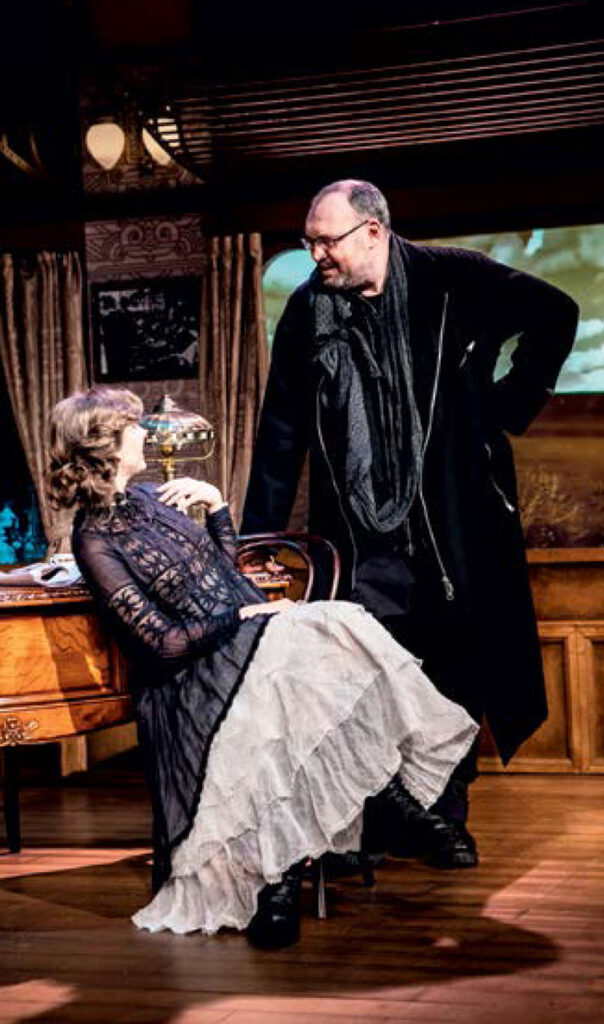If Fyodor Mikhailovich had lived in our time – what would he have written? Could he have taken up storytelling, composing quizzes or scripts for documentaries? Who would his characters and audience have been? In general, is Dostoevsky any more relevant or not?

These questions formed a program devoted to the 200th anniversary of the writer: it was held at the Theater of Nations from March to December 2021, with the support of the Foundation U-ART. Two stages, the Small and the New, were assigned to the experimental performances.
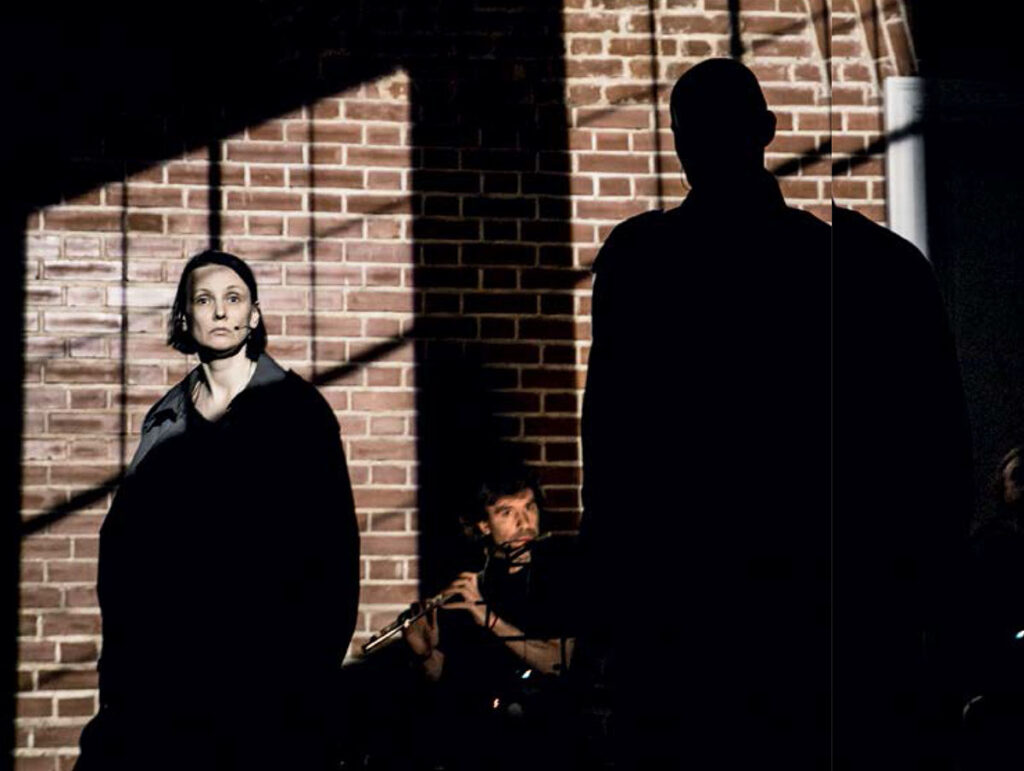
EVGENY MIRONOV, Artistic Director of the Theater of Nations:

“I am convinced that those who truly connect with works of Fyodor Mikhailovich undergo profound changes. Once my meeting with Dostoevsky in the play “The Karamazovs and Hell” was a kind of purgatory, I came out of it a completely different person. Later, I had roles in movies based on Dostoyevsky: I played Prince Myshkin and Fyodor Mikhailovich himself. During my immersion in the material, I realized that this is one of those writers who mercilessly dissect the human being down to the molecules. In our anniversary program, we decided to use various forms of art to “dissect” Fyodor Mikhailovich himself.
The program includes works of different genres, from dramatic performances to video art. This is an attempt to look at the figure of Dostoevsky in its entirety. In addition, it is important that this research work is carried out by the younger generation. We are very interested to know what issues, from their point of view, an author like Dostoevsky addresses.”
PLAY
Winter Notes on Summer Impressions. Directed by Elena Nevezhina
“Generally, foreigners –– this was quite striking to me –– are almost all incomparably more naive than Russians. We are more cynical; we hold what is our own less dear, we do not even like what is our own, or at least we do not respect it.” Nowadays, such words might as well have appeared on Facebook. However, this is a quote from an essay Dostoevsky wrote in the 1860s after a trip to Europe.
Winter Notes on Summer Impressions, published in Vremya magazine, formed the first play in the anniversary program. Dostoevsky’s journalistic works never had the same resonance as the writer’s great novels.
Yet its “non-obligatory” nature, the ease of its arguments and remarks, is precisely what we find so intimate.
This is a travel blog, tweets written on the train out of boredom. “I feel an overwhelming urge to tell you, out of humanitarian feelings, about my mediations in the train car as we make our way to Paris: I was bored in the train car, you know, so now you will be bored too,” the writer seems to be trolling his readers. It is as if we are hearing a living Dostoevsky, our contemporary.
STORYTELLING
Dostoevsky through the Eyes of Children. Performers – Elena Gorina and Aleksandr Gorelov
Before launching the project, its authors conducted a survey and found out that children and parents have different attitudes towards Dostoevsky. For most adults, Fyodor Mikhailovich is the author of existential works. The Brothers Karamazov, Crime and Punishment, Demons. “A dark, lonely writer who makes you think about hard things.” However, preschoolers and younger schoolchildren perceive him in a completely different way –– for them he is «a man with a funny last name who wrote a long story.”
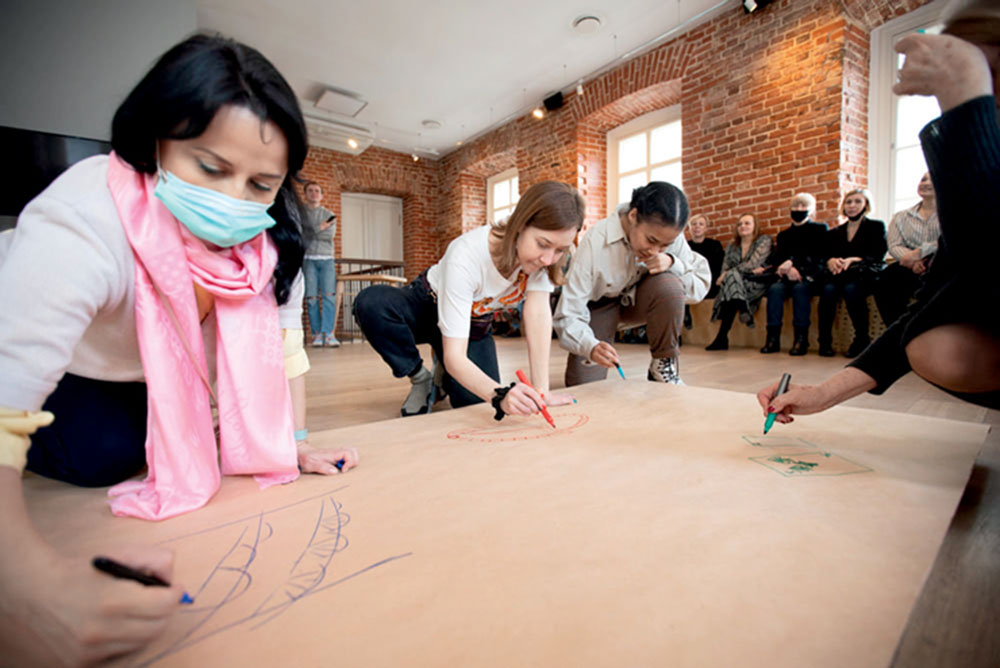
Aleksandr Gorelov: “This story, or rather different stories – “storytelling” – unexpectedly became the audience’s favorite. This year, the performance went to several theater festivals with great success and the audience liked it so much that it went beyond the experimental program of the New Space – it will also be shown at the Theater of Nations in the 2022 season.”
Elena Gorina: “Dostoevsky never ceased to be a subtle, sensitive child with a kind heart. The Storytelling project is based on the comparison of adult and children’s perspectives.”
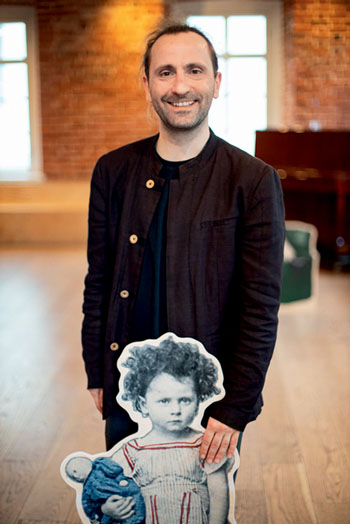

OPERA
Dostoevsky 200. Opera” Director — Vladimir Rannev
Four chamber operas, four groups of authors, four approaches to working with classical texts. Finally, a brilliant performance of the composers’ daring ideas by the Moscow Contemporary Music Ensemble and the N`Caged vocal ensemble. The experiment with a modern opera interpretation, or rather a reinterpretation of Dostoyevsky’s texts, was aimed at lovers of contemporary art. No wonder it received the greatest response in the professional community: it was noticed by music critics, there was great interest from composers, art advisors, and performers. In fact, the performances are described as a good start for conversion into full-length opera works.
VLADIMIR RANNEV, curator:
Dostoevsky’s texts have a difficult relationship with the musical theater, they are musical in themselves, therefore they resist the intrusion of the composer’s will into their intonation fabric. The more difficult, it seems to me, our idea is, but the more interesting it was to bring it to life.
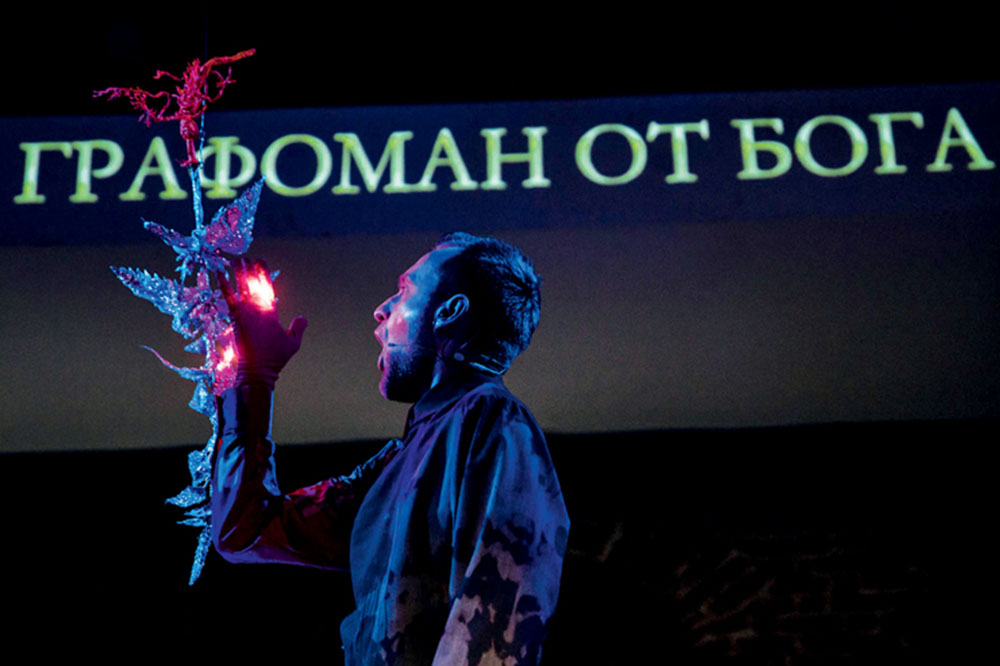
QUIZ
Dostoevsky 200. QUIZ. Author – Vitalii Korolev
An intellectual game – a quiz – based on Dostoevsky became an unexpected and new format for the theater. It was so unusual that the organizers even tested the game on theater workers before launching the project. There were different concerns: how much do we really know about Dostoevsky? Will the theater audience be interested in the format? However, according to the participants, it was not so difficult: the quiz was designed with humor, more based on imagination and ingenuity than on factual knowledge. The players “searched” for traces of Dostoevsky in mass culture: in cinema, in music, in music videos, in architecture. “At first it was scary as hell, then it became fun as hell,” one of the participants commented.

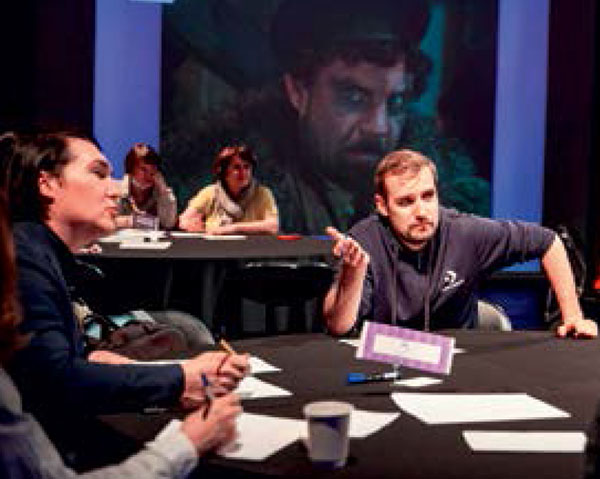

SARAH TOKINA, curator of the program in the New Space of the Theater of Nations:
We wanted to present Fyodor Mikhailovich’s work in the context of modern culture: what influence he had on it, how his work develops through contemporary artists, as well as to change the angle a little and expand the audience’s perception of Dostoevsky. After each project, discussions with the public took place, and it was important for the organizers and artists to get feedback. There were a lot of reviews on social networks, people periodically asked questions: Is this Dostoevsky? This means that what he saw did not always coincide with the usual idea of Dostoevsky. Personally, as a curator, it was also important for me to make sure that after the end of the program the projects lived and developed further, the New Space of the Theater of Nations became a platform for premieres. And I hope that the operas that turned out to be part of Dostoevsky 200 will be staged on a full scale, and many viewers in Russia and around the world will see the films.
ANTHOLOGY FILM
Hero project. Together with the School of Documentary Film and Theater of M. Razbezhkina
The students of the School of Documentary Film and Theater were asked to find characters in today’s world that resemble Dostoyevsky’s characters and make a short film about them. All filmmakers addressed this creative challenge based on their own inner feelings and associations, resulting in mini-projects with an unexpected perspective on the classic texts. Now they participate in European festivals.
MARINA RAZBEZHKINA documentary filmmaker, project director:
“It is interesting to study how Dostoevsky’s characters exist today, and how relevant are these types of characters? Is it now possible to meet Alyosha Karamazov or Netochka Nezvanova in the street? It is an incredibly interesting task set for us by the Theater of Nations.”
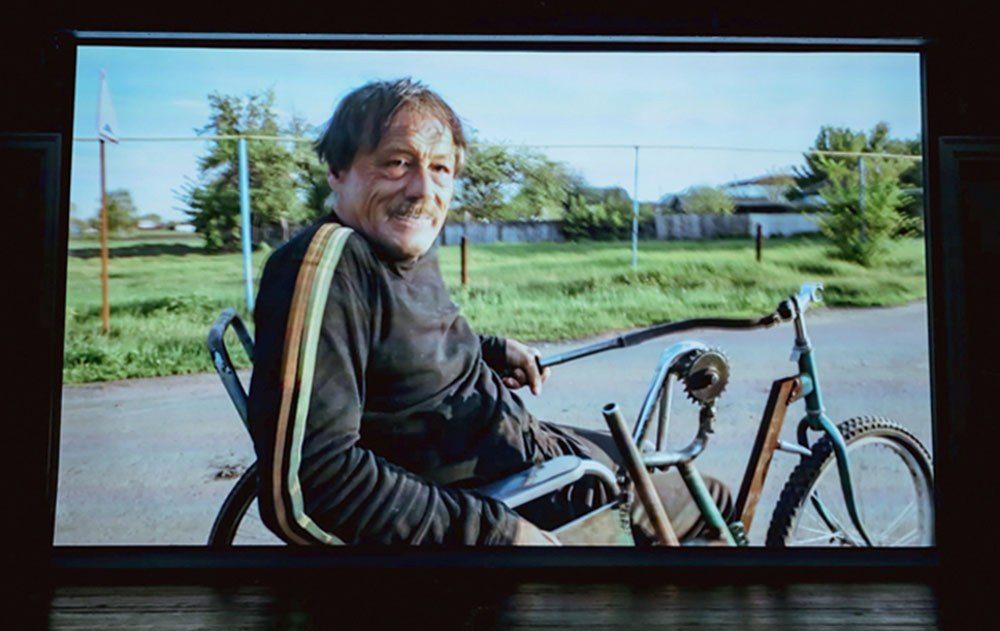
VIDEO ART
Film program “Dostoevsky. Visions.” Director — Vladimir Nadein
How do you make a film today based on Dostoyevsky without any clichés? What does “dostoevshchina” (Dostoevsky’s signature style) look like through the eyes of young artists? To answer these questions, it was decided to hold an open call among the new generation of authors. The fundamental condition was not to limit creative experiments in any way. This resulted in short works in an unconventional genre that leans more towards video art.

Danila Lipatov showed “lap dogs” – apolitical people – through Perestroika-era footage and quotes from Dostoyevsky.
VLADIMIR NADEIN, director:
“It is important to note that neither film is a direct adaptation of this or that novel or story, but, on the contrary, it attempts to trace residual images, kind of ghosts, borrowed from Dostoevsky.”

Text: Mariana Kapsuletskaia
Photo: Theater of Nations

